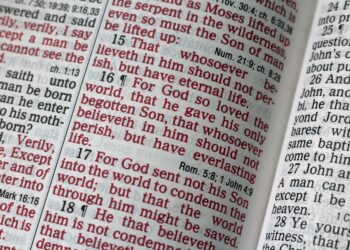The Concept of Faith Healing and Its Place in Various Religious Traditions
Throughout human history, people have sought remedies for physical ailments, both through modern medical science and through the power of faith healing. The concept of faith healing, rooted in the belief that faith and spirituality can play a significant role in healing the body and mind, holds an important place in various religious traditions worldwide. In this blog post, we will explore the concept of faith healing and its significance in different religious contexts.
Faith healing, also known as spiritual healing or divine healing, refers to the process of treating diseases or ailments through prayer, faith, and the power of belief. It is based on the belief that a supernatural power or divine intervention can restore health and well-being. Faith healers often act as intermediaries between the divine and those seeking relief, as they pray, lay hands on, or perform rituals to channel healing energy.
One of the most well-known religious traditions that emphasizes faith healing is Christianity. In various Christian denominations, from Catholicism to Pentecostalism, faith healing is seen as an integral part of the spiritual journey. Many Christians believe that Jesus Christ performed numerous healing miracles during his time on Earth, and his followers continue to tap into this power of divine healing today.
In Catholicism, the sacrament of the Anointing of the Sick is practiced, where a priest anoints the sick person with holy oil and prays for their healing. Catholics also believe in the intercessory power of saints, seeking their help through prayer to aid in physical and spiritual healing. Similarly, in many Protestant denominations, the laying on of hands and prayer for healing is a common practice during worship services.
In the context of Islam, faith healing is tightly woven into the fabric of the religion. Muslims believe that everything happens according to the will of Allah, and healing is no exception. During times of illness, Muslims are encouraged to turn to Allah in prayer and seek his guidance and healing. Islamic faith healers, known as Ruqyah practitioners, recite verses from the Quran and perform certain rituals to channel healing energy onto the afflicted person. These practices are believed to bring about physical, psychological, and spiritual healing.
Traditional Chinese medicine, which has its roots in ancient Chinese philosophy and religious beliefs, also incorporates faith healing practices. In Chinese culture, the concept of Qi (pronounced “chee”) – the life force energy – is crucial to maintaining overall health and well-being. Traditional Chinese medicine practitioners often combine herbal remedies, acupuncture, and Qi Gong exercises with spiritual practices such as prayer and meditation to restore balance and promote healing.
Within Hinduism, faith healing takes on various forms. Hindus believe in the interconnectedness of the physical and spiritual realms, and health is seen as the harmonious balance between mind, body, and spirit. Ayurveda, the ancient Indian traditional medicine system, emphasizes the use of natural remedies and spiritual practices like yoga, meditation, and the chanting of mantras to promote healing. Additionally, Hindu devotees often seek blessings from deities in temples or engage in rituals, such as fire ceremonies, to invoke divine help for healing.
The concept of faith healing extends beyond organized religious traditions as well. Many indigenous cultures across the globe have relied on faith healing practices for centuries. Shamanism, for example, is a spiritual practice found in various indigenous communities that emphasizes the role of shamans, spiritual leaders who act as mediators between the human and spirit worlds. These shamans perform rituals, ceremonies, and practices to heal the sick and restore balance in the community.
Despite the widespread practice and belief in faith healing, it is essential to recognize that it is not a substitute for modern medical science. While individual experiences may vary, it is crucial to seek professional medical advice when dealing with serious health conditions. Faith healing can serve as a complementary practice, emphasizing the important role of spiritual well-being in overall health.
In conclusion, faith healing holds a significant place in various religious traditions worldwide, reinforcing the belief that the power of faith and spirituality can contribute to physical and mental well-being. From Christianity and Islam to Hinduism and traditional indigenous cultures, faith healing encompasses a diverse range of practices and beliefs. While faith healing can be a source of comfort and support, it should always be complemented by appropriate medical care.













